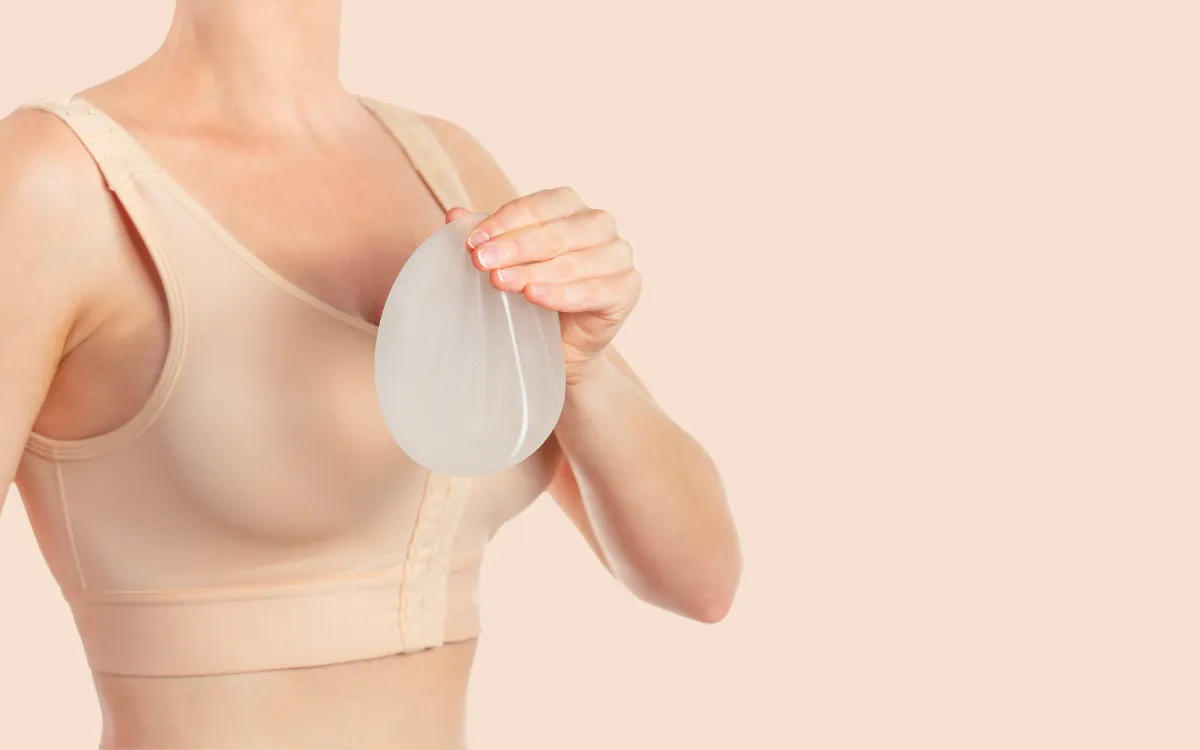Can Breast Implants Cause Breathing Problems? What You Need to Know
By Partington Plastic Surgery on May 22, 2024 in Breast Implants

One of the most sought-after cosmetic surgeries globally, breast implants provide people the chance to improve their self-confidence and physical appearance. Breast augmentation, like any surgery, has risks and potential problems that should be considered. Among these concerns, some wonder: can breast implants cause breathing problems or other health issues?
Anyone considering breast implants must know the risks associated with them. Conversations about these problems with a skilled healthcare professional guarantees that all inquiries are answered and helps one make an informed decision on the procedure.
Understanding Breast Implants and Their Impact on the Body
Breast implants are medical devices that help enhance or restore the size and shape of breasts. They’re often used in cosmetic surgery for augmentation or in reconstructive surgery after a mastectomy or injury.

General Health Impact of Implants
Particularly concerning the chest and surrounding muscles, breast implants might change the body’s anatomy. Upper body activities may affect chest muscle function due to submuscular location. The added weight of implants can also alter posture, potentially causing back or shoulder strain without proper support. As the body adapts, implants may lightly press or move surrounding tissues, including muscles and skin. Modern implants integrate naturally, but excellent posture, proper exercise, and regular medical examinations are essential for long-term structural health and alignment
Can Breast Implants Cause Breathing Problems?
Direct Effects on Breathing
Most people do not usually connect direct breathing problems with breast implants. In rare cases, big or misaligned implants can press on the chest wall. This pressure might cause a sensation of chest tightness or make deep breathing difficult.
Scar tissue, also known as capsular contracture, can increase implant toughness and cause minor muscle pain that may impair deep breathing. Any significant or recurrent respiratory condition should be observed right away by a doctor.
Breathing Problems After Breast Implants: Potential Causes of Issues
- Severe cases could cause pressure on adjacent tissues, which could limit chest expansion during breathing.
- Initial swelling after surgery could temporarily impact the surrounding tissues and chest wall, therefore causing modest breathing difficulties during recovery.
- As the chest muscles adjust to the implants, especially when implanted under the muscle, breathing may be impeded.
- Sometimes, distinct underlying diseases — such as asthma, chronic obstructive pulmonary disease, allergies, or interstitial lung disease — may cause breathing problems. These issues may be coincidental, but worsen after the surgery.
Identification of the root cause and guarantee of suitable management of any breathing problems depend on proper evaluation and conversation with a healthcare professional.
Conditions and Risk Factors That Could Increase Breathing Problems

Asthma and Respiratory Issues
Breast implants and breathing problems, like asthma, can be difficult to combine. Particularly if the chest wall feels constricted or if lung capacity is already limited, the extra weight and pressure from the implants may worsen symptoms.
Infection and Fluid Buildup
Normal chest function can also be limited by infections or seromas development, a buildup of fluid around the implant, which causes respiratory problems. Breast enlargement can cause discomfort and pressure. Such disorders not only cause regional discomfort but could also limit chest wall movement, therefore aggravating any sensation of tightness or trouble breathing. To prevent problems and relieve symptoms, antibiotics or fluid drainage are needed.
Obesity and Body Type
Breathing problems after breast implants can occur in certain cases, and the likelihood of this feeling following a breast augmentation operation depends greatly on body composition. Individuals with higher BMIs or larger body frames may experience added strain on the chest and respiratory system.
Added implants can cause the mix of excess weight and compressed tissues to be more apparent in terms of tightness or difficulty breathing. A thorough check-up with a doctor helps address these factors before surgery.
Chronic Pulmonary Silicone Embolism
Rarely occurring, chronic pulmonary silicone embolism is a disorder in which silicone particles enter the bloodstream and settle in the lungs, leading to problems. Cosmetic or medical silicone implant or injection techniques often cause it.
Natural Look
Confident Beauty
24 Hour Rapid Recovery, Muscle Sparing.

Understanding Breast Implant Illness
Can breast implants cause breathing problems? A range of symptoms that some individuals experience with breast implants -including fatigue, joint pain, and difficulty breathing – is often associated with a condition known as breast implant illness.
How to Minimize Breathing Problems After Breast Augmentation
Selecting the Right Size
Implants should match your body size. Going for a size too big for your body can strain your diaphragm and chest, causing pain. Decide based on your body type and consultation with a certified surgeon.
Consult with Your Surgeon
Ensuring your comfort and safety depends critically on the consultation stage. Discuss your medical history, breathing issues, and risk concerns. Your surgeon will analyze your body type and recommend the suitable implant size and location to lower the possibility of breathing problems.
Post-Operative Care
Proper post-surgery care is key to a smooth recovery and reducing the possibility of breathing problems after breast implants:
- Follow your surgeon’s instructions regarding medications and wound care to avoid an infection.
- Attend all follow-up visits to track recovery and handle any issues.
- Sleeping in an elevated position reduces edema and promotes drainage.
- Wear any recommended supporting clothes to help with healing and maintain the positioning of the implants.
- Avoid hard activities and heavy lifting during rehabilitation.
- Hydrate and eat well to heal.
- Immediately report to your surgeon any odd symptoms, like trouble breathing or too much swelling.
Many women find great empowerment and satisfaction in reaching their intended result following breast augmentation. It increases confidence and makes one more at ease in their own body. It can be rather motivating to be able to dress in clothes that either fit better or more precisely match their style.
When it comes to how implants feel in the body, most women say that with time, the implants start to feel as though they are a natural part of their body. Particularly preferred for their realistic texture and flawless over-time merging are soft, cohesive silicone implants.
Choosing the right size, shape, and implant type is vital to achieving these satisfying results. In addition to helping to avoid discomfort, implants that fit your body’s proportions produce a more harmonic augmentation. Speaking with a seasoned surgeon guarantees tailored advice that fits your objectives and maintains your health as the first concern.

When to Seek Medical Attention
Signs of Breathing Complications
- Persistent shortness of breath
- Chest pain
- Feeling of tightness in the chest
Complications Requiring Immediate Attention
Some disorders may affect respiration, hence they may call for quick medical intervention. An implant rupture, whether from injury or wear, can produce chest pain or breast abnormalities that require diagnosis and treatment.
Can Breast Implants Be Safe for People with Respiratory Concerns?
Breast implants can be safe for persons with respiratory problems, but thorough testing and medical advice are needed. Pre-existing respiratory patients should thoroughly discuss their medical history with their surgeon to evaluate potential risks. Rare problems like surgical edema or infection can impair breathing. Selecting an experienced surgeon, correct implant placement, and following postoperative care guidelines will help to reduce these risks. The patient’s health and respiratory state will determine breast implant safety.
Moving Forward with Peace of Mind
To summarize, can breast implants cause breathing problems? Patients with existing respiratory issues can still safely undergo breast augmentation surgery with the right precautions and careful planning.
Surgeons and anesthesiologists go over patients’ medical histories, including respiratory issues, during a comprehensive consultation. Lung function tests or imaging are among specialized preoperative diagnostics suggested to evaluate the respiratory system’s capacity for surgery. Respiratory experts and surgeons can create a specific surgical plan to reduce problems. Advanced procedures and meticulous anesthetic control guarantee the patient’s safety further during the surgery.
We advise you to schedule a consultation at Partington Plastic Surgery if you are thinking about breast augmentation but worry about your respiratory health. Achieving safe and satisfying results depends much on knowing your options and planning your surgery under the direction of an experienced medical professional.
Return to Overview
